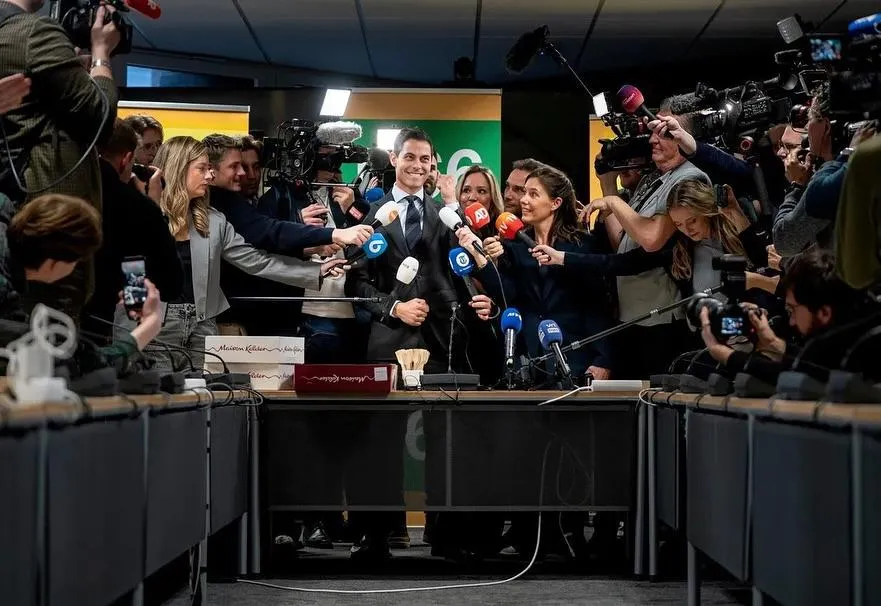
Centrist-progressive D66 Party Wins Dutch Elections; Party Leader Could Be First Openly-gay PM
THE HAGUE, Netherlands—The centrist-progressive Democrats 66 (D66) was declared the frontrunner in last week´s Dutch national elections, garnering 26 seats in parliament. It was a neck-and-neck race with the right-wing nationalist PVV Party, which also garnered 26 seats, equivalent to 1,767,826 votes. With all ballots counted, as of Nov. 3, 2025, the D66 was ahead by 14,067 votes against PVV (1,753,759 votes).
Liberal center-right PVV, a party of four-time prime minister and now NATO secretary general Mark Rutte, got 22 seats (down from 24 in 2023), followed by the coalition of leftist Labor and Green Parties (PvDA/Groenlinks) with 20 seats (down from 25 in 2023) and Christian democrats CDA with 18 seats (up from 5 in 2023).
It was a shocking defeat for the anti-immigration, anti-Islam PVV, which lost 11 seats from its record victory in the last elections in 2023. Less than two years from the 2023 elections, PVV Party leader Geert Wilders walked away from the center-right coalition that his party formed because his pet immigration bill, containing hardline proposals, could not pass. Many parts of it were deemed either illegal, unenforceable or unattainable.
The D66, which only had nine seats in the 2023, catapulted to having 26 seats, largely to its youthful, 38-year-old party leader Rob Jetten.

Jetten’s strong performance in debates, polished appearance, and optimistic campaign messaging helped secure a landmark victory, according to analysts. D66 succeeded in drawing support from across the political spectrum, attracting both progressive and conservative voters. Many supporters of GreenLeft-Labour, frustrated with their own party leadership, were drawn to D66’s hopeful “It can be done” slogan.
The Netherlands operates under a multi-party system, where a wide array of political parties compete, and it's rare for any single party to win an outright majority of votes. As a result, forming a coalition government through inter-party cooperation is typically necessary.
D66 is now expected to take the lead in a first round of talks to form a coalition government, a process that usually takes months. It took the Netherlands over seven months to form a coalition government after the 2023 elections.
While Wilders’ so-called “most rightwing government ever” has come to an end and centrist parties are gaining traction, experts emphasized that far-right sentiment remains strong—it has simply migrated to smaller parties. At the same time, public confidence in the political system is strikingly low, hovering at just 4%.
In line with parliamentary tradition, the leader of the largest party typically takes the lead in forming a coalition. Yet the highly fragmented election results—where a notable number of far-right voters shifted their support from Wilders to JA21, which jumped from 1 to 9 seats, and Forum for Democracy, which rose from 3 to 7 seats—pose serious obstacles to building a stable governing alliance.
On Friday, Jetten, who could be the first openly gay PM of the Netherlands, called for unity among mainstream parties. “Voters have clearly expressed a desire for collaboration,” he said. “We aim to build a majority committed to tackling key issues like housing, migration, climate, and the economy.”
Photos: Rob Jetten Facebook

